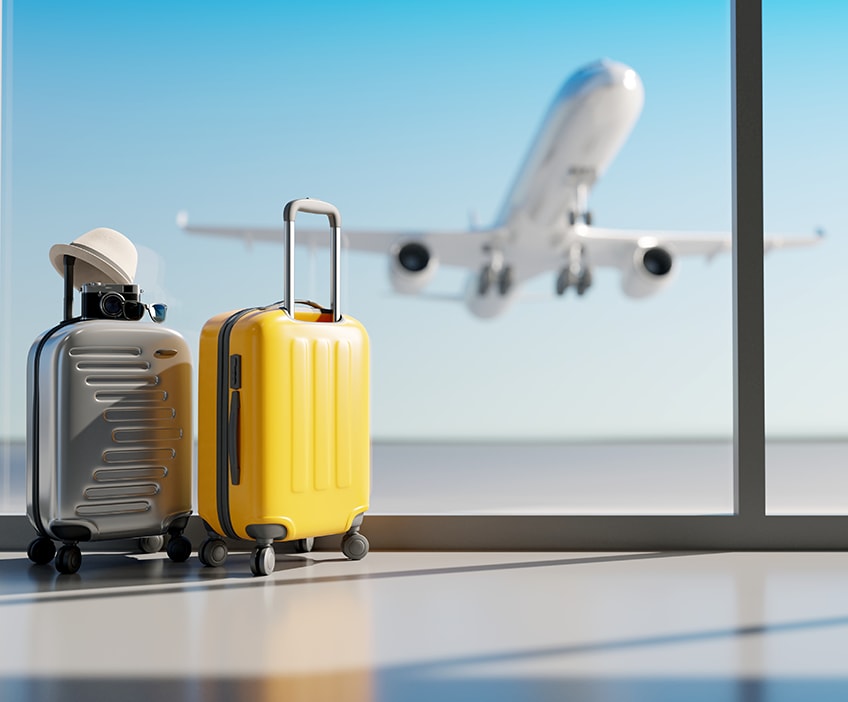This scavenger hunt for secure airport wifi will keep your family safe and entertained
When you’re on the road, make a game out of the wifi networks and vulnerabilities that are in the air all around you.

Just because your aircraft hasn’t arrived at the gate, the flight crew is nowhere to be seen, and you’re not in the least bit sure how long your flight will be delayed doesn’t mean you can’t have a little fun at the airport, right?
So as you enter summer travel mode, we’re pleased to present a fun and informational game to pass the time. All you need to play is a wifi device, a little extra time, and a sharp eye for network safety. Yes, there are points…and bragging rights.
To start play, open the wifi settings on your digital device and search for available networks. You’ll likely see an array of different connections—that means more points for you.
How many legitimate networks, bad digital habits, or suspicious connections can you find?
The Sketchy Network – 5 points each
No doubt as soon as you open your list of available wifi connections, you’ll see some network names you definitely want to avoid (don’t tap on them accidentally). It’s a good thing to exercise some healthy skepticism if you see a network called “JoinHereForFreeInternet2000!”
The risk with joining sketchy, unsecured networks is that it’s possible for a stranger or a cyber criminal to monitor what you’re doing: the sites you visit, the accounts you sign into, the emails you send, and more. Worse, you might encounter a scammer hosting a fake network who asks you to enter credit card information to gain internet access.
Look in the available wifi networks near you and see how many sketchy network names you can find.
The Guest Network – 4 points each
Internet access has become a ubiquitous amenity across the world—and we like that. Restaurants, hotels, shops, businesses and more will set up guest-access to their wifi in hopes you’ll browse a little longer, buy another coffee, or visit their online stores.
Guest networks from businesses are generally safe, but you should always be sure what you’re signing on for if access comes with any terms & conditions for access. If the network isn’t secured, it’s still a good idea to avoid accessing any sensitive data like bank accounts or unencrypted emails.
How many guest networks can you find in your vicinity?
Other People’s Personal Networks and Devices – 2 points each
Do you know what the network name of your smartphone is?
While you’re scrolling through wifi connections, you’re likely going to stumble onto the devices of your few travelers. For sure, you’re not a bad actor, but look at the names of the devices and consider how much free information they’re broadcasting. Then, decide if you should go into your device settings and update your device name.
For example, “IBMTP4024” doesn’t give much information about that device or its owner. However, “JSmith Macbook Pro” or “Jane Doe’s Personal Hotspot” is more information than most of us should be giving up in a terminal full of strangers.
Mark yourself 2 points for each personal device you can find, and 10 points if you discover the device of a friend or family member you’re traveling with.
Real Airport wifi – 5 points
Now that we’ve covered most of the connections you want to avoid, can you find the legitimate wifi network(s) for where you are?
One way to prepare ahead of time is to check what wifi service is offered at your destination airports before you leave. Most airports have free connections that start with “_Free,” like LaGuardia’s “_Free LGA wifi”, or Heathrow’s “_Heathrow wifi.” In other airports, internet access is operated by a private company, so you’ll see networks like “Boingo Hotspot” or “T-Mobile wifi.”
Mark yourself 5 points for finding the legitimate airport wifi networks.
If you’re ever unsure, you can ask nearly anyone who works at the airport. They’ll know!
Connect with Norton VPN – 10 points
Finally, give yourself 10 points if you’re connecting with VPN over any wifi network.
In the airport, or anywhere you travel, a VPN connection adds to the security of the traffic between your device and the websites you visit when connecting over wifi. Even when you’re on a guest network, or if you’ve accidentally connected to an unsecured network, VPN helps prevent unwanted eyes from looking at your traffic data and the information you send and receive. Consider a trusted virtual private network like Norton Secure VPN to help ensure your most sensitive information remains hidden from prying eyes.
Give yourself 10 points for being a secure-minded traveler.
General steps you can take to keep yourself safe
Even legitimate networks can be infiltrated by bad actors who are on the same networks, that’s why it’s important to be wary of how you connect, and what you do online when you’re on a public network. Here are some extra precautions you can take.
- Always use a VPN when connecting to a public network. It helps keep your information safer, and helps prevent hackers from accessing the data you transmit.
- Be cautious about what you’re doing online. Avoid accessing your bank or sensitive emails when using a public wifi system.
- Log out, and forget the network. When you’re done with the internet, take the extra steps to go back to the wifi settings on your device and delete the network. That way you won’t connect by accident in the future.
- Follow these additional steps to keep yourself safer.
So how many points did you score? Let us know, and have a great summer vacation.
Editorial note: Our articles provide educational information for you. Our offerings may not cover or protect against every type of crime, fraud, or threat we write about. Our goal is to increase awareness about Cyber Safety. Please review complete Terms during enrollment or setup. Remember that no one can prevent all identity theft or cybercrime, and that LifeLock does not monitor all transactions at all businesses. The Norton and LifeLock brands are part of Gen Digital Inc.





Want more?
Follow us for all the latest news, tips, and updates.